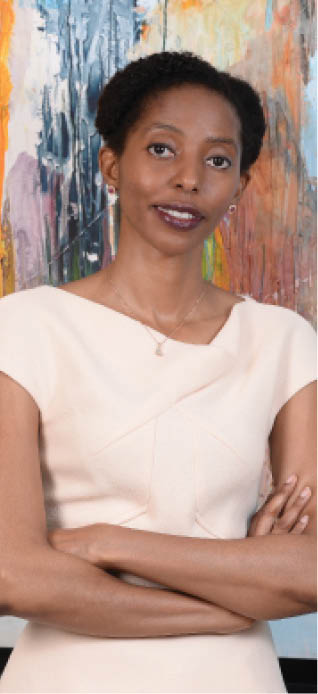LADOL’s MD and P4G advocate the need for more women leaders
To mark this year’s Women’s Day, the Managing Director of Lagos Deep Offshore Logistics Base, LADOL, Dr Amy Jadesimi is advocating the need for more female leaders in the world. She said this is in line with 2019 International Women’s theme: Think equal, build smart, innovate for change. Gender parity is Goal 5 of the […]

To mark this year’s Women’s Day, the Managing Director of Lagos Deep Offshore Logistics Base, LADOL, Dr Amy Jadesimi is advocating the need for more female leaders in the world.
She said this is in line with 2019 International Women’s theme: Think equal, build smart, innovate for change.
Gender parity is Goal 5 of the United Nations Sustainable Development Goals. However, women are not just beneficiaries of Goal 5, they are the key to achieving all the Goals. Research over the years has proven conclusively that gender parity, particularly in the work place will unlock billions of dollars in extra profits. Companies in countries in Africa, a continent poised on the verge of becoming the engine of the world, need to embrace Goal 5 to create the jobs that Africa needs.
Commenting on the importance of having women in the C-suite and their contribution to sustainability, Dr. Jadesimi stated: “If you have women on your board of directors your company is going to be 42% more profitable than companies that don’t have female directors. Research shows that some of that benefit comes from the fact that women look at the world differently and that we more often make decisions and raise issues that lead to greater sustainability”
Commenting on the work being done by P4G, Dr. Jadesimi stated:
“Supporting women led-partnerships is an essential part of achieving the sustainable development goals and increasing corporate profits,”.
Her role as CEO of LADOL, Dr Amy said that she has been privileged to have the opportunity to build a brand-new ecosystem from scratch – the world’s first Sustainable Industrial Free Zone.
“Since joining the company in 2004 it has been clear to me that the winning business models of the future are sustainable ones. From inception LADOL has broken new ground and disrupted the local market by pursuing a new economy business model, which has now proven to be the winning strategy.”
“African CEO’s now know that our future lies not in emulating the West but in surpassing it, sustainable business models are one of our essential keys to success.”
In line with operating a sustainable Industrial Free Zone and empowering women, she said LADOL supports SDG Goal 5 as a core part of its corporate policies and procedures, stating that:
“As a company we go the extra mile to create a diverse environment and recruit the best people, which means finding innovative ways to ensure the best women are considered as well. This focus on diversity, leads to hiring the best and building the most effective teams, which is one of the keys to our success.”
“LADOL’s sustainable masterplan includes building fully service offices and workshops, which will enable more women in Nigeria to set up and expand their businesses by lower the financial and bureaucratic barriers to entry for women and providing a safe and sustainable work space.”
Dr. Jadesimi reiterated that the Green Growth space is by necessity in need of highly disruptive innovation and brand-new business models, and therefore diverse, confident and skilled teams which embrace change are needed to build successful private and public sector organisations in this space.
She explained that her company, LADOL is the largest private indigenous free zone in Nigeria and a strategic special economic zone, built in a secure island, inside the Port of Lagos. LADOL has proven it is the ideal location in which to execute the largest global industrial projects. Local and international companies can engineer, manufacturer and train in this safe sustainable ecosystem. LADOL will create 50,000 direct and indirect jobs across a range of industries. Having halved the cost of petroleum sector service provision and positively disrupted this sector, the developers are focused on creating a circular economy within the Zone and attracting non-petroleum sector companies into the Zone, starting with agriculture and technology.
